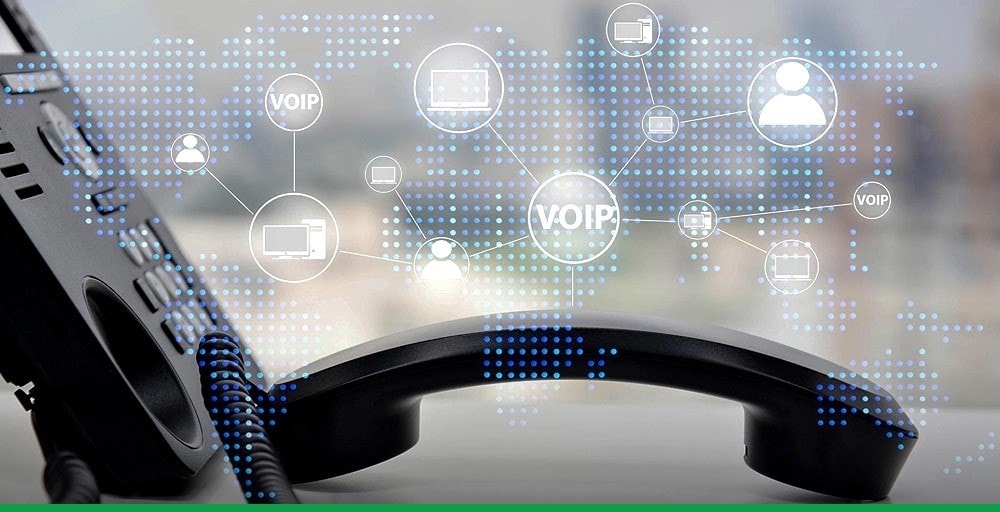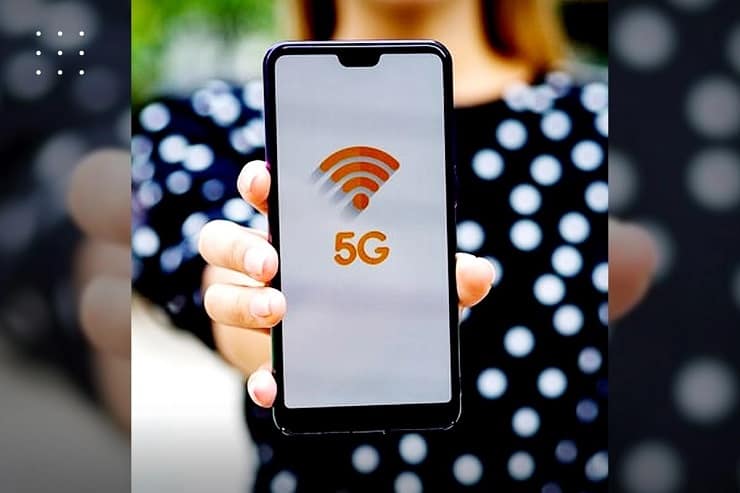Revolutionizing Communication: Exploring the Benefits and Challenges of VoIP Technology

Table of Contents
Human interaction depends on communication to exchange ideas, express feelings, and convey information. Our lives revolve around communication, and VoIP has reshaped it dramatically.
Table of Contents
Communication today is facilitated by VoIP, making phone calls cheaper and easier. VoIP appears to be changing communication in the future.
This article will explore the benefits and challenges of VoIP technology. We will discuss how this technology is revolutionizing communication and address its challenges.
What is VoIP Technology?

VoIP (Voice over Internet Protocol) is the system that carries your voice using Internet connectivity. Sometimes, it is called IP telephony, internet calling, or voice-over network.
VoIP technology allows you to make and receive phone calls using a broadband internet connection instead of a traditional telephone line. VoIP calling converts the analog sound signals of human speech into digital data that can be transmitted over the Internet.
Modern VoIP phone systems enable call centers worldwide to run more efficiently by upgrading traditional landlines. An example of VoIP software that is popular for video calling is Skype.
Importance of Communication Technology in Modern Society
We’re in the 21st century now, and communication technologies have changed the way we interact in a big way. We can now share information, express our feelings, and exchange thoughts with people all over the world in an instant.
Our modern society depends on communication technologies such as emails, social media platforms, video conferencing, blogs, vlogs, and instant messaging. These platforms allow us to communicate in different ways. We can post questions and answers for others on group forums such as Reddit.
Moreover, we can create and publish blogs for others and connect with people by making daily vlogs. Live video stream platforms allow to interact with individuals all around the globe in real-time as live streamers can read comments and respond to those comments.
Evolution and Development of VoIP Technology
VoIP technology has gotten the hype in recent years. It has already contributed to numerous advancements in how telecommunications are handled and how we communicate in our daily lives, offices, and homes.
The VoIP technology was first introduced in 1995 by the company VocalTec. It allowed PCs with Internet connections to make calls, so you didn’t have to pay for international and long-distance calls.
VoIP calls increased to 25% by 2003 of all voice calls. As internet connectivity became stronger, VoIP also became more advanced, and its prevalence increased in businesses, homes, and offices.
Nowadays, we use it every day. Our family overseas can still be contacted for free or at low prices using VoIP. With the rapid growth of VoIP over the last few decades, there are no limits to what it can accomplish. Communication processes are simplified because VoIP is more flexible than any other method.
Benefits of VoIP Technology

VoIP provides many benefits to businesses of all sizes. Anyone can enhance their personal and business communication with VoIP. Here are some significant advantages of VoIP technology.
- Scalability and Flexibility
VoIP phone systems offer scalability and flexibility. Adding new lines is time-consuming and expensive in a traditional phone system. With VoIP, adding or removing new lines is simple and relatively cheap.
A VoIP system does not require a specific location to work. You don’t need to stay at a physical desk, which allows you to get in touch effortlessly. No matter where you are, you can make and receive calls from any place.
- Global Reach and Accessibility
Global reach and accessibility are also one of the most enormous benefits of VoIP. It offers the advantage of making calls from anywhere without limiting a user’s location. You can make your virtual presence and reach many people worldwide.
With a reliable Internet connection, you can make inbound and outbound calls. Further, you can take your VoIP phone system with you anywhere you want, increasing the accessibility of its services.
- Low Communication Expenses
Cost-effectiveness is the most advantageous aspect of VoIP technology. Unlike traditional phone lines, it does not charge excessive fees, especially for international and long-distance calls. With VoIP, users can make calls using an Internet connection, which doesn’t charge fees.
Users only need to pay for internet usage and can make calls in the virtual phone system. This can significantly reduce communication expenses for both individuals and businesses.
- Enhanced Features like Video Conferencing and Call Forwarding
VoIP technology provides advanced features like video conferencing and call forwarding. With video conferencing, you can conduct online meetings and webinars to share information between teams to make quick decisions, increasing efficiency and productivity in the business.
Moreover, you can forward incoming calls to the right destination with call forwarding. It ensures you don’t miss any calls when agents are busy or away from the office. The VoIP technology is not limited to video conferencing and call forwarding; it offers other features like IVR, voicemail, auto attendant, call analytics, and so on.
📖Read also How to make video calls that win more clients
Challenges of VoIP Technology
Although VoIP has many benefits, there are some challenges to this technology. Components such as chosen VoIP software and hardware, daily call volume, location, and the number of active users may vary the potential challenges. The challenges of VoIP technology are discussed below.
- Call Quality and Reliability Issues
VoIP relies on a high-speed internet connection for seamless communication and high-quality voice calls. A weak internet connection results in calling issues like dropped calls, latency problems, and poor call quality.
A low call quality can be disadvantageous for business as customers might be disappointed with your service. You won’t experience seamless interaction with customers or employees because you can’t listen to each other clearly and convey the information you want.
- Dependence on Stable Internet Connections
As discussed in the above point, VoIP is highly dependable on stable internet connections. The internet connection directly affects the VoIP calls.
You don’t need to face problems like dropped calls, echo, and choppy audio if you have a stable internet connection. Otherwise, an unstable internet connection will ruin your experience with VoIP technology.
- Security and Privacy Concerns
As every technology is vulnerable to security threats, so is VoIP. Several cyber threats and vulnerabilities can affect VoIP systems, including Distributed denial of service (DDoS), call tampering, vishing/fishing, and VoIP fraud. Hackers use different methods to make your system a victim of these security threats.
In addition, VoIP calls are more likely to be the victim of eavesdropping, in which unauthorized users steal sensitive data by listening to private communications. For businesses and individuals who use VoIP, this is a major concern.
Future Trends and Innovations

Soon, VoIP technology will transform how we communicate personally and professionally. It has a lot of potential to revolutionize communication with its benefits and features. Let’s look at the future trends and innovations of this technology.
- Advancements in VoIP Technology
With the emergence of new and exciting trends, VoIP technology keeps evolving. Due to its higher flexibility and cost-effectiveness, businesses are shifting to cloud-based solutions.
Integration of IoT (Internet of Things) with VoIP will go mainstream as VoIP-powered IoT devices will increase to create a smarter world. Unified Communication as a Service (UCaaS) platforms will leap into this technology to empower businesses to manage and organize their communication processes, enabling them to offer an omnichannel service experience to customers.
- Potential Impact of 5G Networks on VoIP
5G is the fifth generation of mobile networks introduced in 2019. 5G provides a higher-speed internet connection with low latency, enabling VoIP to provide better audio and video quality. It will help to improve video conferencing with a higher number of participants in a single call.
With 5G, users will be able to access and transfer files super fast in the VoIP system. Moreover, users will be able to download a large volume of files in just a matter of seconds.
- Integration with Artificial Intelligence and Virtual Assistants
Artificial Intelligence is going to be the most promising future trend of VoIP, and it wouldn’t be wrong to say that the future belongs to AI. As AI can predict movements, identify patterns, analyze data, and learn from experience, VoIP can provide more personalized experiences.
Virtual assistants will help to reduce additional requirements for staff members to answer simple questions such as customer feedback, complaints, and queries. In addition to that, your existing staff will be freed to handle more tasks as well.
VoIP Security Measures

Securing VoIP technology is significant in preventing sensitive and private information. Here are some VoIP security measures.
- Best Practices for Securing VoIP Networks
You can implement various practices to secure your VoIP network. You can regularly update your VoIP system to protect the system from the latest security threats and attacks.
Furthermore, secure yourself from identity theft by restricting consumer data access and limiting call redirection settings. You can configure account verification by restricting IP addresses with unsuccessful password attempts and blocking everyone except your agents.
- Encryption and Authentication Methods
Encrypting VoIP calls is the best way to secure your sensitive information. Encryption protects your data by transforming voice data into an unreadable format. So, your calls and information are secured from unauthorized users.
You can create multiple layers of security for your account by implementing multi-factor authentication. You can use the IP address restrictions method to restrict access to your VoIP systems to specific IP addresses.
- Protecting Against VoIP-based Attacks
Several cyber threats and vulnerabilities can affect VoIP systems, such as DDoS attacks (Distributed Denial of Service), tampering with calls, vishing/fishing, and VoIP fraud. Hackers use different methods to make your system a victim of these security threats.
However, it is possible to mitigate these threats using different controllable methods. You can contact your Internet Service Provider (ISP) to inform them of the situation. You can implement a modern firewall system, regularly monitor calls, and use expert services and guidelines.
Conclusion
Wrapping up, VoIP technology has brought significant advancements in modern communication. Its benefits, such as cost-effectiveness, global accessibility, scalability, flexibility, and advanced features, are why businesses are shifting from traditional to modern VoIP phone systems.
VoIP has drawbacks and challenges, including reliability issues and call quality, dependence on a stable internet connection, and privacy considerations. However, these drawbacks do not stop VoIP from advancing and improving. 5G and artificial intelligence are the technologies that will shape and harness the potential of VoIP.